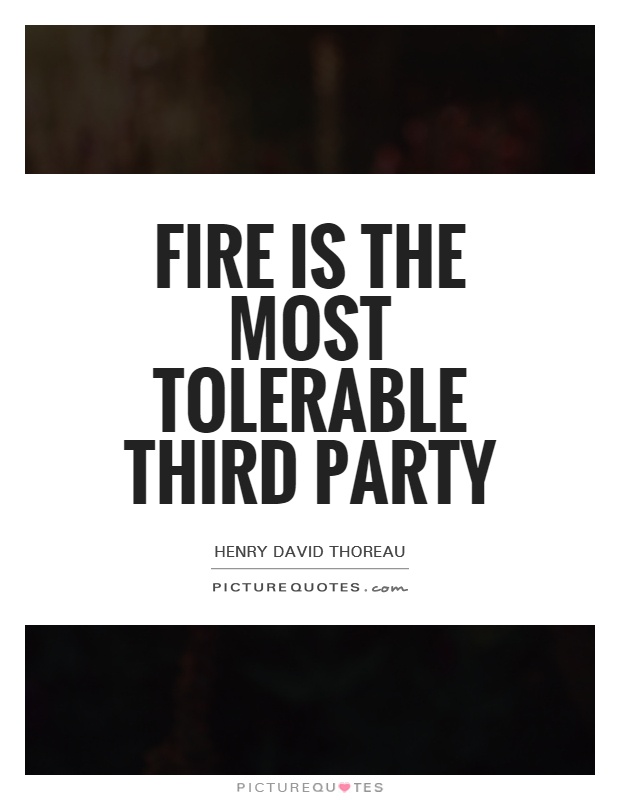Fire is the most tolerable third party

Fire is the most tolerable third party
In the writings of Henry David Thoreau, the concept of fire as the most tolerable third party is a recurring theme that reflects his deep connection to nature and his belief in the power of solitude. Thoreau, a renowned transcendentalist philosopher and writer, spent much of his life living in the woods near Walden Pond in Massachusetts, where he sought to live a simple and contemplative life in harmony with nature.For Thoreau, fire symbolized both the destructive and transformative power of nature. In his essay "Walking," he writes, "Fire is the most tolerable third party." This statement can be interpreted in several ways. On one level, fire represents the uncontrollable forces of nature that can bring destruction and chaos. Thoreau acknowledges the potential danger of fire, but also sees it as a natural and necessary part of the ecosystem. In this sense, fire serves as a reminder of the impermanence of all things and the cyclical nature of life and death.
On a deeper level, fire can also be seen as a metaphor for the inner passion and creativity that lies within each individual. Thoreau believed that by immersing oneself in nature and solitude, one could tap into this inner fire and find a sense of purpose and meaning in life. In his book "Walden," Thoreau describes how he would often sit by the fire at night, contemplating the mysteries of the universe and his own place in it. The warmth and light of the fire provided him with a sense of comfort and companionship, even in the midst of solitude.
Thoreau's reverence for fire as a symbol of both destruction and renewal reflects his belief in the interconnectedness of all things in nature. Just as fire consumes and transforms, so too can we harness our inner fire to create change and growth in our own lives. By embracing the power of fire as a third party, Thoreau encourages us to embrace the wild and untamed aspects of ourselves and to find beauty and meaning in the natural world around us.












 Friendship Quotes
Friendship Quotes Love Quotes
Love Quotes Life Quotes
Life Quotes Funny Quotes
Funny Quotes Motivational Quotes
Motivational Quotes Inspirational Quotes
Inspirational Quotes